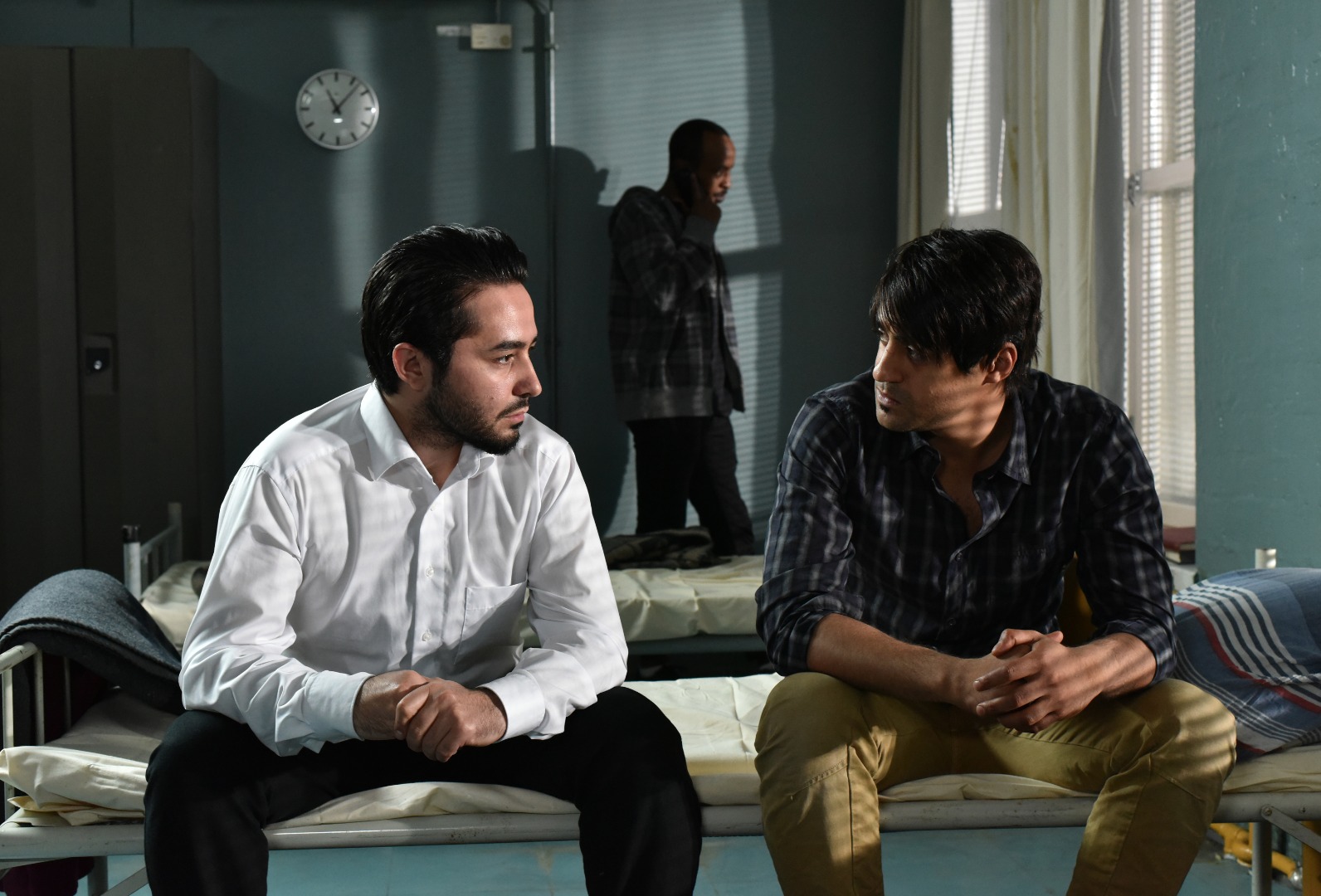
MPAA Rating: NR | Rating: ★★★½
Release year: 2017
Genre: Comedy, Drama, Foreign Director: Aki Kaurismäki
If one were to make a comedy about the Syrian refugee crisis, one might need to have a suitably dark and droll sense of humor. Finnish director Aki Kaurismäki achieves such a feat with his signature deadpan, absurdist tone in The Other Side of Hope, a film which celebrates the ordinary goodness of human encounters caught up in extraordinary circumstances. Paradoxically silly and stoic, imagine the social realism of Loach or the Dardennes in the films’ focus on working-class urban populations, only with a strict formalism of static or slow-panning shots where everything appears as if lit with fluorescent lighting, interspersed with bizarre rock/folk musical interludes. Such is Kaurismäki.
The Other Side of Hope follows two intersecting tales, one of Khaled (Sherwan Haji), a young Syrian man who in Helsinki’s port after stowing away on a freighter, and Wikström (Sakari Kuosmanen), a middle-aged salesman-turned-restaurateur attempting a new beginning late in life. The film is patient, taking its time to build each individual narrative arc before their inevitable collision occurs halfway into the film. Khaled’s journey is certainly the more dramatic, even as much of his journey involves enduring the bureaucracy of immigration. Having survived violent civil war in Syria, Khaled now must survive the snail’s pace of the Finnish system, one which may ultimately reject his application for asylum. In the parallel tale, Wikström tries to whip his new restaurant into shape with the help of the cadre of three misfits he inherits with the purchase, all while trying to comply with inspections and client expectations. (Their attempt at turning the place into a sushi restaurant is painfully and hilariously awkward.) In this, The Other Side of Hope is about enduring and subverting the overarching systems of society. Khaled and Wikström are two men working the angles, moving between the rules of law in order to eke out a life for themselves, driven by the mission of self-preservation even as they seek to help and support others, Khaled with his sister, Wikström with his employees and, ultimately, Khaled.
Much of the quirky, eccentric tone of The Other Side of Hope makes it feel like a fantasy or fairytale of sorts. These characters rarely appear like real people exhibiting real behaviors, with Bresson-like stiltedness mixed with a few over-the-top performances (a group of Finnish neo-Nazis who repeatedly harass Khaled are outlandish caricatures to a fault). Yet there is also a simplicity and authenticity behind Kaurismäki’s bizarre stylings. This is a tale of ordinary people who encounter their neighbor in need and try to help, to do good. There are few actual villains here (apart from the already-mentioned Nazis), as the police, inspectors, and bureaucrats are each portrayed simply as people trying to do their jobs and get by one day at a time. Perhaps its the Finnish culture, but there are few smiles, tears, or big emotional moments. Yet this is a richly affecting film, not because of melodrama, but because of its humane morality. This is a film filled with good people genuinely trying to do good, and sometimes willing to even sacrifice their own good for the sake of another person. As such, it’s perhaps an ideal film to watch as this year of 2017 nears its conclusion. As overwhelming as the present refugee crisis has become, and as unhelpful as political vitriol and travel bans are in the process, Kaurismäki’s weird and wonderful film reminds us of the human capacity to look another person in the eye and hope.
IMDB Listing: http://www.imdb.com/title/tt5222918/
Leave a Reply